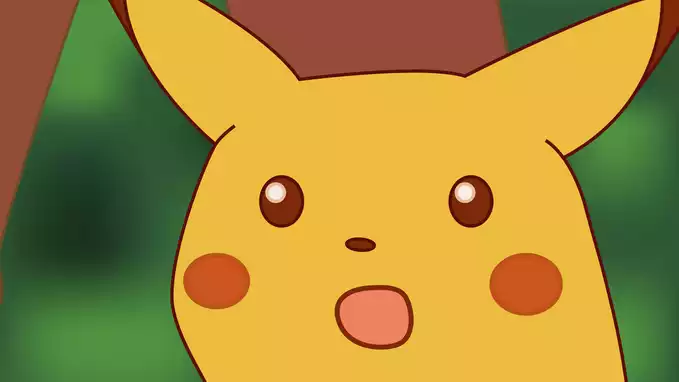The official tournament circuit for Pokémon competitions is the Video Game Championships (VGC), established in 2009 and run by different groups in different regions. At the recent Korean Pokémon Trainers Cup finals, some players, upset by mismanagement in general and the poor tournament format in particular, staged a protest during a dead rubber match: they used Pokémon equipped with metronomes and continued to use them throughout the match.
This would obviously lead to some strange matchups, and as far as the pros were concerned, the cherry on the cake is the in-game text for the metronome: the Pokémon performs moves by waving its fingers back and forth.
The tournament organizers didn't see the fun in it; Nash, a VGC player and Team Korea manager, was disqualified along with four other players and later took to social media to protest and explain the circumstances behind his disqualification.
I am not going to get into the rules and tournament format of the VGC, but Pokémon Korea's choice of a best-of-one qualifying format has proven to be incredibly unpopular among competitive players. Korea also recently cancelled the results of the qualifying tournament and offered a first-round bye next year as a remedy for players who performed well: in effect, it confirmed that the same hated format would remain. In addition to this, the Korean scene has struggled to get back into live events after the pandemic.
"There are no IRL events, there are constant problems with the touring system, young divisions are neglected, and there is absurd compensation for the problems they have caused. But the real problem behind all of this is the absolute disrespect they show to our players."
The protest took place during the final round of the Trainers' Cup, which determines the first through fourth places, but as Nash explains, the team had already qualified for the second day of the Pokémon World, so "it wasn't that big a deal." So the players colluded to form a team equipped with metronomes and used this technique to protest the tournament organizers.
One player was expelled before the match, with no explanation given. The remaining players submitted their teams for the match and just before the match started they all received an email saying they had been cancelled. The replacement for the expelled player also participated in the metronome play, and he too was expelled.
"The reason for that is because we all locked in Pokémon that had learned certain moves," Nash said. According to Pokémon Korea, this constitutes a prohibited activity." Specifically, the players were cited for conduct that Nintendo and/or The Pokémon Company (TPC) "deems inappropriate." The players did something that the TPC did not like ...... and were banned for this reason.
One of the teams involved in the protest can be seen at.
To prove the devil, competitive Pokémon is clearly big business, and this protest was basically intended to turn the biggest tournament on the Korean circuit into a sham. However, being expelled from the Trainers' Cup and losing a slot in the World Championships seems rather forced.
"Pokémon Company Korea has had a serious lack of communication over the years," Nash told TheGamer. 'The way I see it, the series of events that have been happening not only in Korea, but in the Asian region in general - from terrible formatting to technical problems to disqualifying top contestants for no good reason - all lead to the same problem: "The Pokémon Company Korea has been very Disrespect for the fans."
And if the goal was to divert attention from the problems on the Korean scene, that is not exactly what happened. Banned players have been lionized in the competitive Pokémon community for speaking out on behalf of other players in Pokémon Korea, and the stunt has garnered more attention than the odd metronome-only battle.
"I'm proud of the Korean players," said former Pokémon world champion Wolf Glick. "TPC takes their brand image very seriously. ...... I can't believe they would protest at their own tournament: ...... It's unacceptable either way. The players probably knew the risks and did it to better their scene. That's why people are talking about this: it's not about the players, it's about the players themselves.
"I think the players were very brave to risk their chances to become world champions. I honestly don't know if I would have done it if I were in the same position."
Former world champion Park Se-jung, usually a jovial character, adds her voice to the chorus.
It's basic, but to become the best Pokémon player in the world in your area, you have to put in a lot of effort and really love the game. All of these players have reached that stage, and any of them could have won this tournament. But instead, they chose to use this opportunity to highlight what they believe is a larger problem in the scene. In any case, there is no doubt about their courage.
As for the Pokémon Company and its many subsidiaries, they are essentially secretive, and from a business perspective, their approach makes a lot of sense. With the responsibility of managing one of the largest media brands in the world, they talk about things in public only when they are ready and rarely give a glimpse into their inner workings. In many of the areas the company works in, this is not a problem.
However, the same lack of communication is a weakness when it comes to competitive Pokémon, where TPC clearly wants to have some sort of control. The Korean scene is in big trouble, and silence is not the answer when the world's most high-profile Pokémon players are united in condemning this situation. If the players' response to the protests is little more than bang-bang hammers and no further involvement, I would not be surprised if such finger-wagging starts to increase elsewhere.
.

Comments